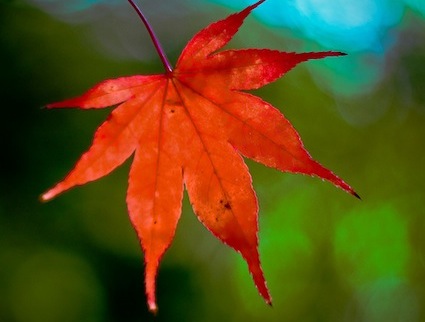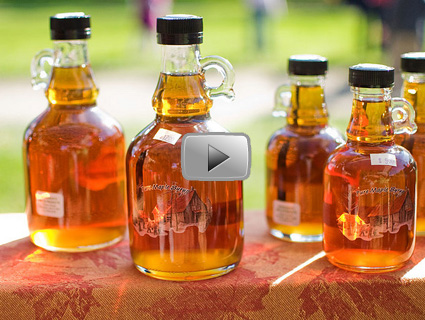
<a href="http://www.flickr.com/photos/safetylast/4086209852/">harold.lloyd</a>/Flickr
For many of us, climate change is an abstract topic, as tedious as a droning Al Gore lecture complete with wonky charts.
But not if you’re a maple farmer in New England. The region has long provided a robust ecological niche for maple trees. But just a few decades of steadily warming weather has changed all that. Once-flourishing trees are shedding leaves too early in the season and producing sub-par sap.
Maple syrup—dark, minerally, its sweetness cut by a caramel edge—surely ranks among the great traditional foods on planet Earth. Climate change means we can no longer take it for granted. If current trends continue, maple syrup production could well be an historical memory by 2100.
In this video, Climate Desk’s James West profiles Martha Carlson, a 65-five-year-old maple farmer, retired teacher, and citizen-scientist who is documenting and publicizing the declining state of maple trees in New Hampshire. “We need lots of citizens to observe nature,” Carlson says at one point. I bet if we all opened our eyes like Carlson has, we’d find that climate change is affecting our own landscapes, too. And then maybe we’d be able to motivate our political class to actually do something about climate change.














